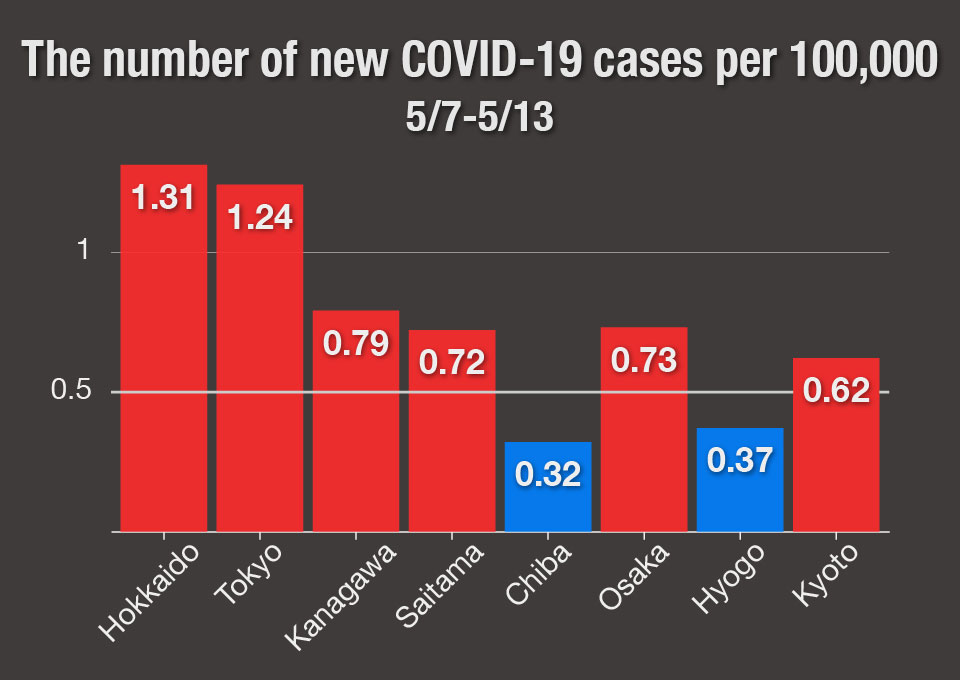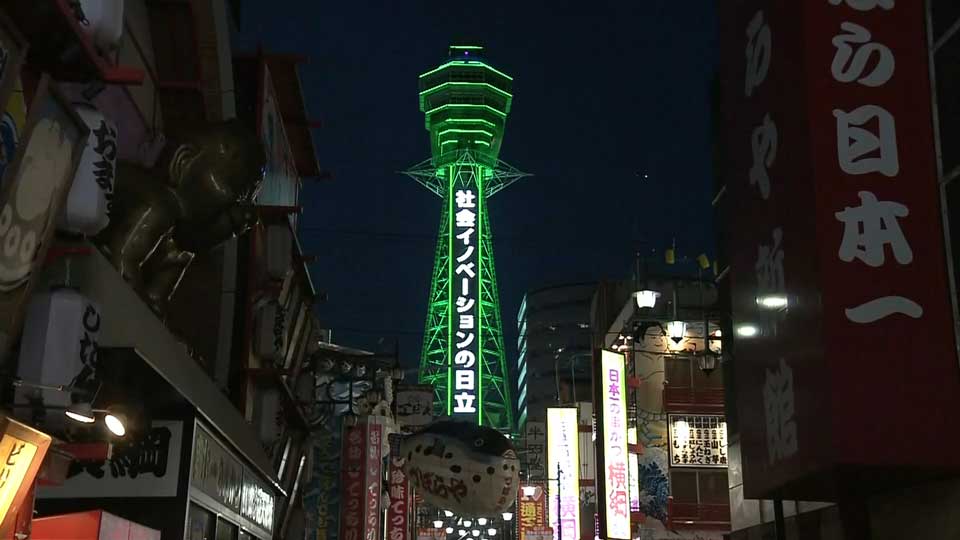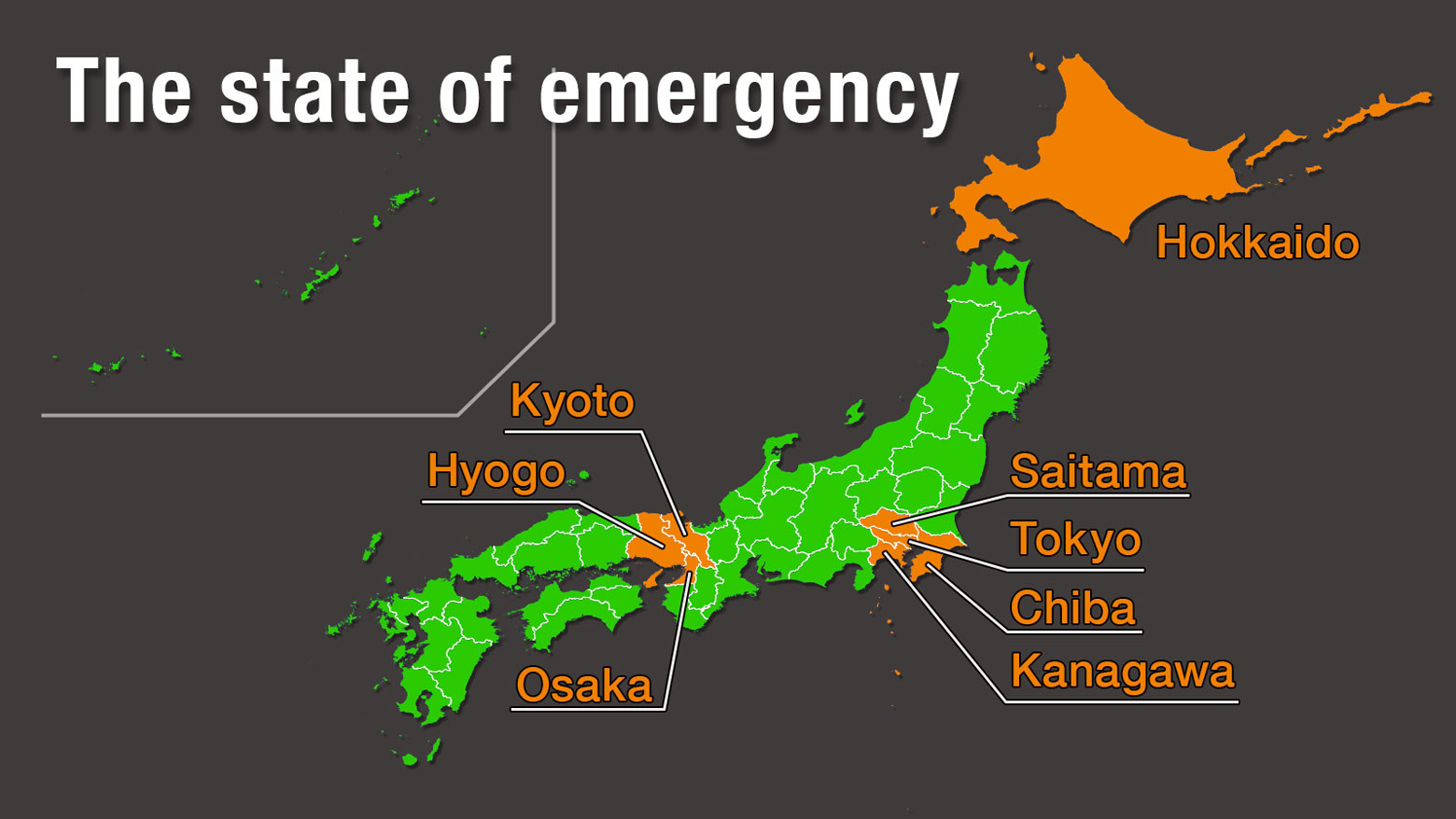Abe said at a news conference on Thursday that a recent decline in the number of new infections is the result of people's efforts to stay home and reduce human-to-human contact.
But he warned that lifting the emergency declaration does not mean the virus will go away, and that infections could surge again unless people stay vigilant. He asked people in all prefectures to keep minimizing person-to-person contact and refrain from traveling across prefectural borders until at least May 31.
Abe says people will have to adapt to a "new normal", which will take trial and error. He says people must be prepared for a long journey, and during that time, jobs and lives must be safeguarded above all else.
The three criteria
A governmental panel of experts came up with a number of criteria, in three categories, to determine when to lift the state of emergency.
Infections
- The number of new cases in a week should be less than in the previous week.
- The number of new cases in a week should be no more than around 0.5 per 100,000 people.
Healthcare
- The number of severe patients must be decreasing.
- There must be adequate hospital beds and hotel rooms for patients.
Monitoring
- There must be resources to conduct sufficient PCR tests.
- There must not be a significant rate of positive results from the tests.

Abe says the government will use those criteria to decide whether to lift the declaration for the remaining eight prefectures as early as next week.
Osaka makes its own decision
Osaka Prefecture will remain under the state of emergency, but Governor Yoshimura Hirofumi says he will begin gradually lifting business suspension requests. Osaka's leaders made the decision on Thursday, saying the prefecture had met a set of criteria they had set independently.
From Saturday, the requests will no longer apply to universities and other academic institutions, museums, libraries, commercial facilities, theaters and cinemas. The request will also be lifted for leisure, sporting, and recreational facilities if their total floor space is less than 1,000 square meters.
The requests will remain in place for hostess bars, live-music venues, gyms, and other types of businesses where cluster infections have been confirmed. They will also still apply to event organizers and the operators of event venues other than rental meeting spaces.
Governor Yoshimura said on Thursday that the month-long shutdown has inflicted a heavy blow on Osaka and its economy. He also says it's crucial to get economic activity back on track, while preventing the spread of infections.

Guidelines for business activities
New guidelines by various business and industry organizations paint a picture of what the 'new normal' might look like.
The Japan Business Federation, or Keidanren, is proposing ways for people to cut down on commuting. They include working remotely, flexible hours and a 4-day work week.
A restaurant industry association is recommending that eateries arrange tables so that customers can remain at least a meter apart and avoid sitting face-to-face. The guidelines also call for a limit on the number of customers if necessary to maintain social distancing.
An organization of hotels and inns is recommending that staff refrain from showing guests to their rooms, and instead offer instructions on how to get there.
Railway operators say they're asking passengers to wear face masks and are opening windows to improve ventilation.
The deputy head of the government panel, Omi Shigeru, said "The normal lives people used to have won't return soon. We need to strike a balance between measures to prevent the spread of infections and protecting business activities."

